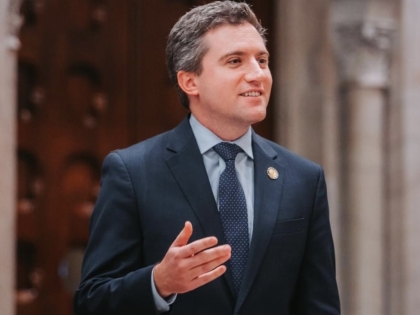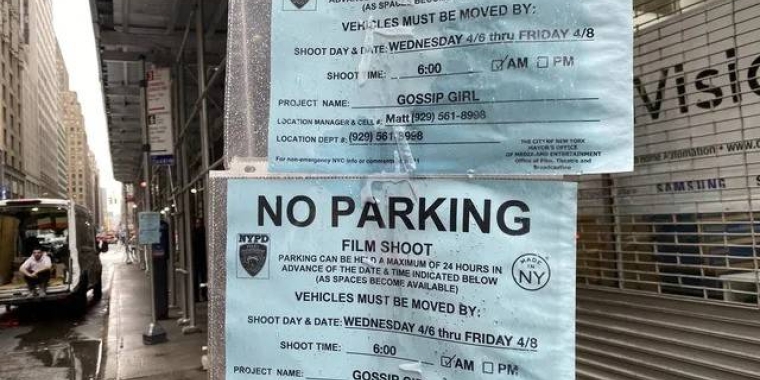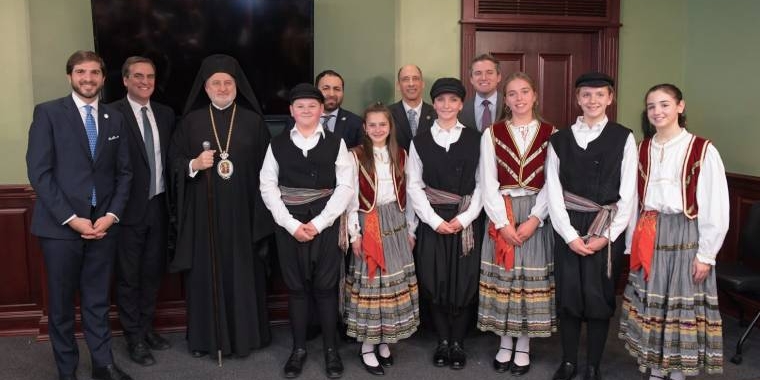
State-funded report says NY’s $700 million film tax credit is a bust

New York’s $700 million-a-year tax break for film and TV productions isn’t providing taxpayers with a good return on investment, according to a new analysis commissioned by the state itself.
The state Department of Taxation and Finance quietly released a 359-page report late last month analyzing New York's major tax incentive programs, which are meant to attract and retain businesses. The analysis, authored by consultant PFM Group, was required by lawmakers two years ago.
The results show a decidedly mixed bag, with some tax breaks — including the state’s marquee Excelsior Jobs Program — performing well, the report found. But the return for the state’s Film Tax Credit, which Gov. Kathy Hochul and lawmakers boosted by $280 million annually last year, was not nearly as positive.
For every dollar the state gave in tax breaks from 2018 through 2022, the Film Tax Credit drew an estimated 15 cents in direct tax revenue, the analysis found. When adding indirect and induced jobs — employees who don’t work directly on production but whose employment stems from it — that return rises to 31 cents.
The state Legislature ordered the report as part of the state budget process in 2022, insisting New York hire an independent consultant to examine whether taxpayers are getting a good return.
The resulting report, posted online without fanfare Jan. 31, examined dozens of state tax incentives used to lure businesses to New York or keep them from leaving.
The state’s biggest industry-specific tax break belongs to the film industry, which gets $700 million a year to film or do post-production work in the Empire State. Hochul and legislative leaders are big supporters of the program, which has helped lure hundreds of productions over the years.
The tax break can be considerable. It covers up to 30% of a film’s qualified production costs, with another 10% available if productions are filmed in certain counties north of New York City. The credit is also refundable, meaning the state pays out the excess money if it exceeds a film production’s tax bill.
Last year, TV shows “Saturday Night Live,” “Blue Bloods,” “New Amsterdam” and “God Friended Me” all claimed the tax credit, totaling more than $20 million each, according to state records.
Beyond the lackluster return on investment, PFM’s report surmised that much of the filming that occurred in New York would have happened regardless of the tax credit.
“It is highly likely, given the existing workforce and infrastructure, that much of the economic activity would occur in [New York State] regardless of the credit,” the report stated. “At the same time, this production industry is episodic and will be attracted in many instances to lower cost options.”
A spokesperson for Hochul said the governor is reviewing the report. Her office pointed to a previous state-funded analysis that credited the Film Tax Credit with supporting more than 57,000 jobs in 2021 and 2022.
“New York's tax credits and incentive programs are critical to growing the state's economy, boosting innovation, and creating good jobs, which is why the Legislature approved them in the first place, and Governor Hochul will continue working with members to improve the programs to maximize benefits for New Yorkers,” said Justin Henry, a spokesperson for the governor.
The prior state analysis, crafted by Regional Economic Models Inc., estimated the Film Tax Credit generated $1.70 in state and local tax revenue for every dollar the state gave up in 2021 and 2022.
E.J. McMahon, founder of the Empire Center, a fiscally conservative think tank, argued that the prior analysis was too simplistic and assumed the film industry wouldn’t have created any jobs without the tax breaks. PFM’s analysis, he wrote, was “meatier” and “less credulous."
State Sen. James Skoufis, a Hudson Valley Democrat who pushed for the new report in the state budget, held a news conference Monday to tout its results.
He said he was genuinely surprised by its positive findings on the Excelsior Jobs Program, a series of five tax credits for businesses in certain industries that create new jobs in New York.
PFM estimated the Excelsior program has a return of $5.25 in tax revenue for every $1 the state forgoes, when including indirect and induced jobs.
But Skoufis said the report’s findings on the Film Tax Credit fell in line with his expectations.
“There are some of us, myself included, that believe that the Film Tax Credit and the associated entertainment tax credits are such a bad deal that they ought to be repealed,” he said. “But the politics is the politics in the state Legislature, and that continues to remain an uphill climb.”
Both Senate Majority Leader Andrea Stewart-Cousins, a Yonkers Democrat, and Assembly Speaker Carl Heastie, a Bronx Democrat, are supporters of the tax credit, as is Senate Deputy Majority Leader Mike Gianaris, a Queens Democrat. Stewart-Cousins and Gianaris both have major film production facilities within their district.
Hochul led the charge to expand the tax credit last year, calling it a major driver of economic activity at a time when other states, including New Jersey, have sweetened their incentives to try to draw productions.
Major Hollywood players have been significant contributors to the governor’s political campaign. They include director Steven Spielberg, filmmaker Jeffrey Katzenberg and film studios, such as CBS, Paramount and Warner Brothers.
Josh Levin, vice president for state government affairs for the Motion Picture Association’s Northeast Region, said New York’s Film Tax Credit is “essential” for ensuring the state “retains its position as a top hub for production activity and union jobs.”
“With over 100 production incentive programs around the world today, we are currently in a time of intense global and national competition for film, television, and streaming production,” Levin said in a statement from the industry group. “Along with a solid labor force and vendor network, these incentives are a primary driver in deciding where projects get made.”
Last year, Hochul and lawmakers extended the Film Tax Credit for an additional 10 years. It’s scheduled to run through 2034.

